Dietary behavior change lasts longer when involving family or friends
Published in Social Sciences, Behavioural Sciences & Psychology, and Economics
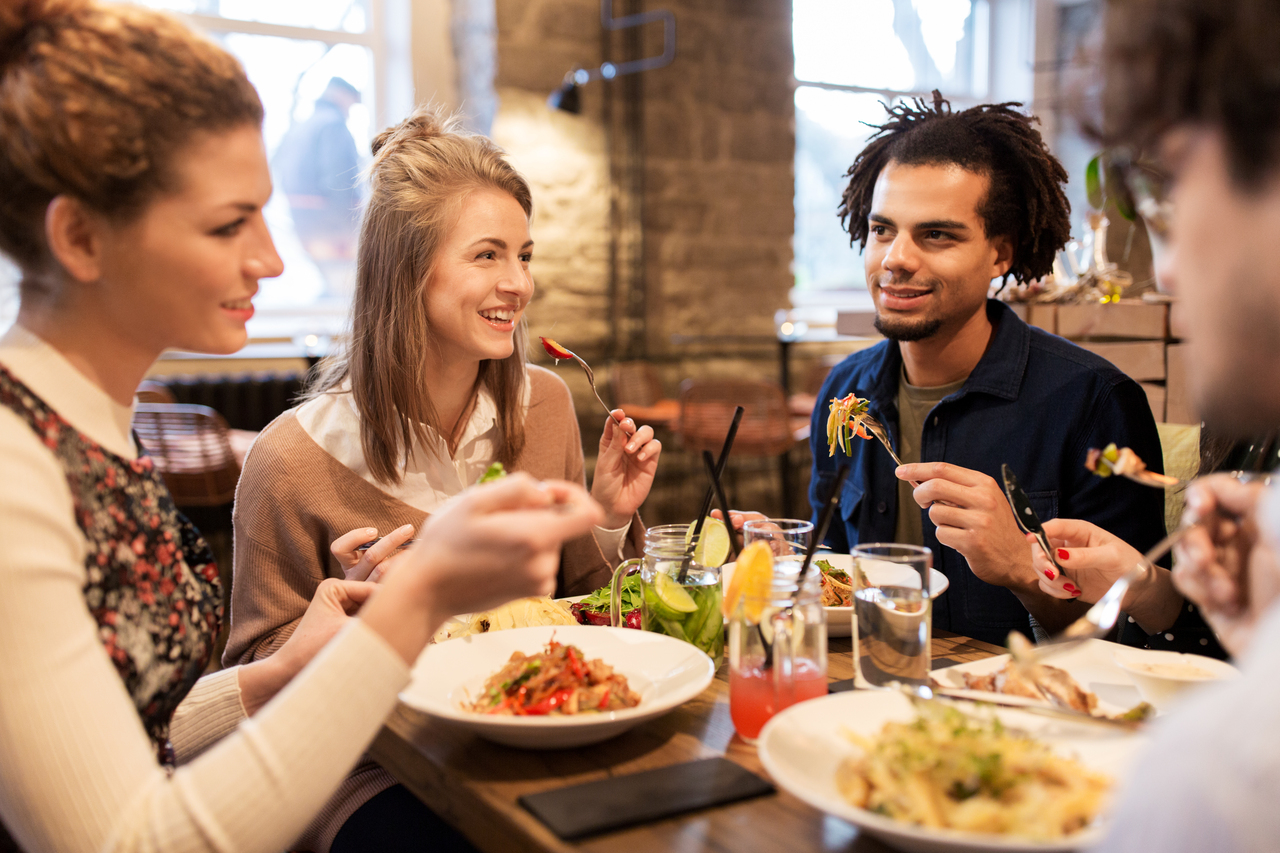
Explore the Research
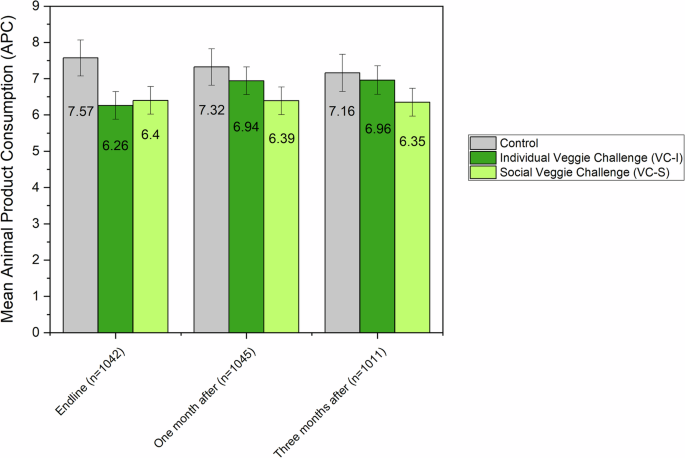
Involving family and friends helps sustainable diets last longer - npj Climate Action
npj Climate Action - Involving family and friends helps sustainable diets last longer
In 2019 I decided to go fully vegetarian. This was not just my own, isolated idea; some friends had informed and inspired me some years before. Everyone around me facilitated and accepted me avoiding meat. The only barrier before my decision had been not wanting to burden others.
This premise sparked my research interest in an understudied topic: social influence on eating fewer animal products. How does our social environment contribute to adopting more plant-based diets? In this published article, we took an experimental approach and followed 1,213 people over time. Spoiler: Involving family and friends in the behavior change process made reductions in animal product consumption more durable!
In collaboration with ProVeg International, we conducted a randomized controlled trial of their campaign called the Veggie Challenge. In the Veggie Challenge, people try to translate their intention into action, by attempting to consume fewer animal products for 30 days. They receive support from a mobile application through recipes, information, feedback (e.g., on emission savings), and behavioral tracking.
In addition to testing the effectiveness of individual participation in the challenge, i.e., the 'individual treatment', we tested whether involving family and friends in the challenge would be equally or even more effective. Participants could involve family or friends in the following two ways: invite them to their virtual team ('Veggie Challenge Teams') and see an activity feed and group-level feedback in the app, and/or involve family and friends in the behavior change process in real life (e.g., telling people about it, cooking together et cetera). We called this encouragement to involve others the 'social treatment'.
Next to the two treatment conditions (individual and social), we followed a control group that only filled out surveys. The 1,213 participants filled out four surveys so we could track them over time before and after the intervention period. A thoroughly considered 3-day recall was used to measure animal product consumption. The measure relies on specific memory while still providing a representation of 'usual' consumption.
Right after the intervention, both the individual and the social treatment were equally effective in reducing animal product consumption (16-17% reduction compared to the control group). This was different at later measurements: 1 month after the intervention, the individual treatment group bounced back, almost to the level of the control group. The effect of the social treatment however remained significant, also 3 months after the intervention. When zooming in on meat consumption only, the effects are larger with an initial reduction of 22-27%, and a durable reduction of 25% for the social treatment 3 months after the intervention.
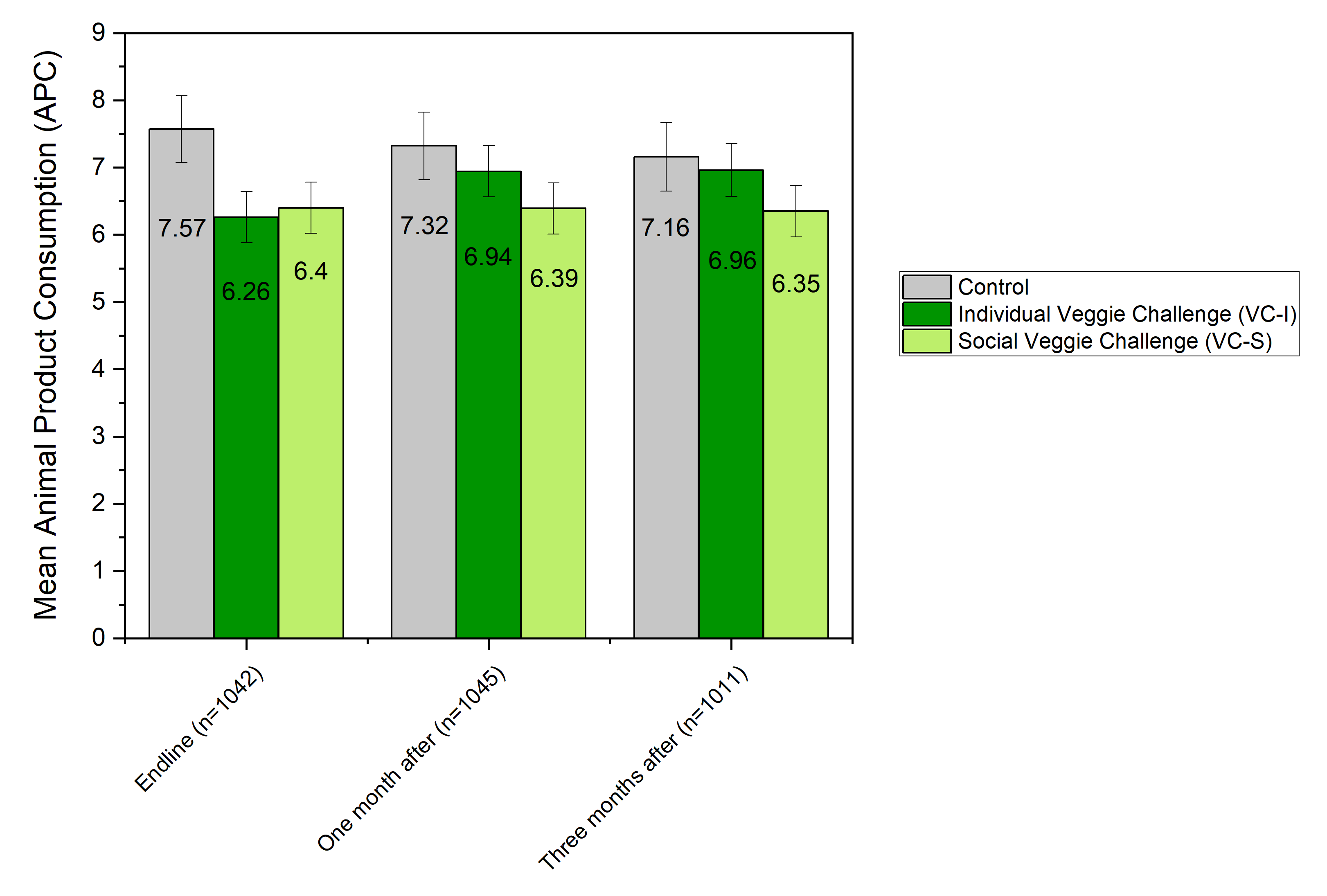
Figure: Main results per measurement and treatment (Figure 1 in the published article)
As behavior change following interventions tends to last only for a short while, our article conveys an important message: A simple encouragement to involve family and friends can make behavior change last longer. And a nice bonus: It could even expand the effects to those family members and friends.
Follow the Topic
-
npj Climate Action

This journal considers research that explores all aspects of mitigating the hazardous effects of global climate change.
Ask the Editor – Collective decision-making
Got a question for the editor about Experimental Psychology and Social Psychology? Ask it here!
Continue reading announcementRelated Collections
With Collections, you can get published faster and increase your visibility.
Climate Activism: Bridging Science, Advocacy, and Public Engagement
Publishing Model: Open Access
Deadline: May 28, 2026
New Perspectives on EU Climate Politics using Text-as-Data Methods
Publishing Model: Open Access
Deadline: Oct 28, 2026
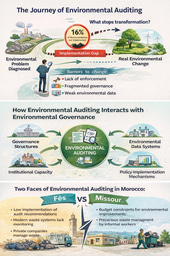

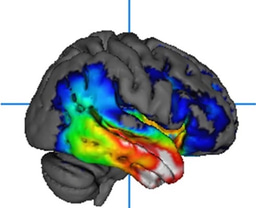


Please sign in or register for FREE
If you are a registered user on Research Communities by Springer Nature, please sign in